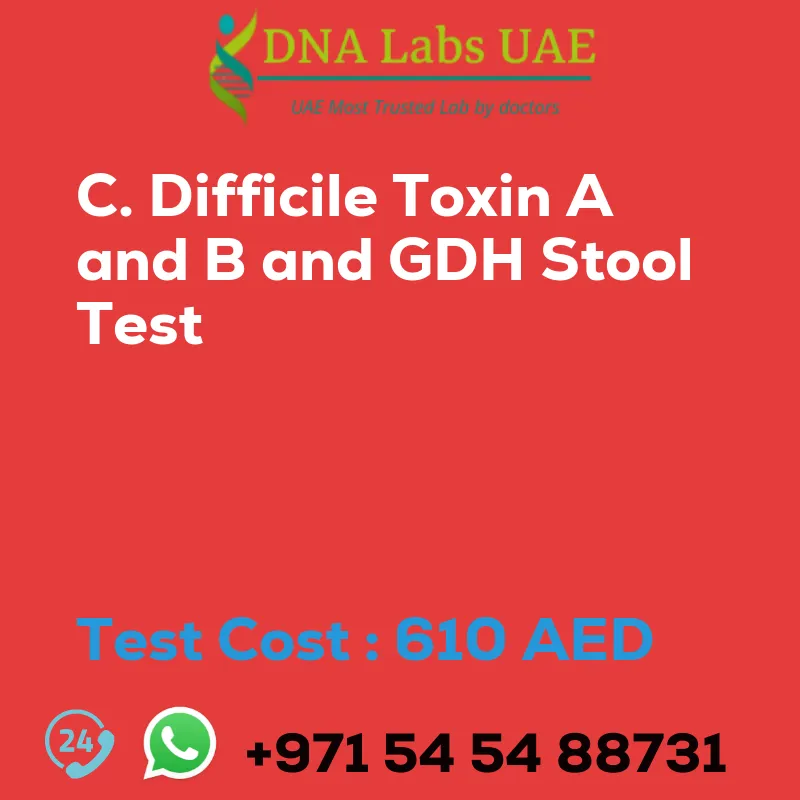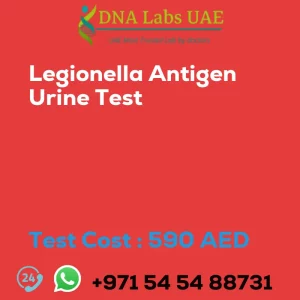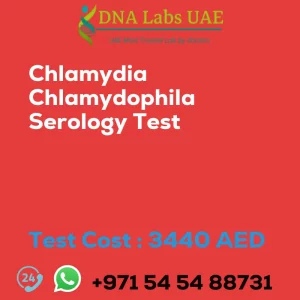C. DIFFICILE TOXIN A and B AND GDH STOOL Test
Test Name: C. DIFFICILE TOXIN A and B AND GDH STOOL Test
Components: Price: 610.0 AED
Sample Condition: 2 g (0.5 g min.) fresh stool in a sterile screw capped container. Ship refrigerated. DO NOT FREEZE. For patients using diapers, first line the diaper with clean plastic to prevent absorption.
Report Delivery: Daily
Method: Immunochromatography
Test type: Infections
Doctor: Gastroenterologist
Test Department: MICROBIOLOGY
Pre Test Information: No special preparation required
Test Details
The C. difficile toxin A & B and GDH stool test is a diagnostic test used to detect the presence of Clostridium difficile bacteria in the stool. Clostridium difficile is a type of bacteria that can cause severe diarrhea and other gastrointestinal symptoms.
The test involves collecting a stool sample from the patient and analyzing it for the presence of two toxins produced by the C. difficile bacteria, known as toxin A and toxin B. These toxins are responsible for the symptoms associated with C. difficile infection.
In addition to testing for the toxins, the test also detects the presence of an enzyme called glutamate dehydrogenase (GDH) in the stool. GDH is produced by C. difficile bacteria and its presence indicates the possible presence of the bacteria in the gastrointestinal tract.
The C. difficile toxin A & B and GDH stool test is typically performed in patients with symptoms of diarrhea, especially those who have recently been on antibiotics or have been hospitalized. It helps to confirm the presence of C. difficile infection and guide appropriate treatment.
The test is usually performed using an enzyme immunoassay or molecular testing method. Results are typically available within a few hours to a few days, depending on the laboratory.
It is important to note that a positive result for the C. difficile toxins and GDH does not necessarily mean that the patient has an active C. difficile infection. Further testing, such as a stool culture or PCR test, may be needed to confirm the diagnosis.
Overall, the C. difficile toxin A & B and GDH stool test is a valuable tool in the diagnosis of C. difficile infection and helps guide appropriate treatment for affected patients.
| Test Name | C. DIFFICILE TOXIN A and B AND GDH STOOL Test |
|---|---|
| Components | |
| Price | 610.0 AED |
| Sample Condition | 2 g (0.5 g min.) fresh stool in a sterile screw capped container. Ship refrigerated. DO NOT FREEZE. For patients using diapers, first line the diaper with clean plastic to prevent absorption. |
| Report Delivery | Daily |
| Method | Immunochromatography |
| Test type | Infections |
| Doctor | Gastroenterologist |
| Test Department: | MICROBIOLOGY |
| Pre Test Information | No special preparation required |
| Test Details |
The C. difficile toxin A & B and GDH stool test is a diagnostic test used to detect the presence of Clostridium difficile bacteria in the stool. Clostridium difficile is a type of bacteria that can cause severe diarrhea and other gastrointestinal symptoms. The test involves collecting a stool sample from the patient and analyzing it for the presence of two toxins produced by the C. difficile bacteria, known as toxin A and toxin B. These toxins are responsible for the symptoms associated with C. difficile infection. In addition to testing for the toxins, the test also detects the presence of an enzyme called glutamate dehydrogenase (GDH) in the stool. GDH is produced by C. difficile bacteria and its presence indicates the possible presence of the bacteria in the gastrointestinal tract. The C. difficile toxin A & B and GDH stool test is typically performed in patients with symptoms of diarrhea, especially those who have recently been on antibiotics or have been hospitalized. It helps to confirm the presence of C. difficile infection and guide appropriate treatment. The test is usually performed using an enzyme immunoassay or molecular testing method. Results are typically available within a few hours to a few days, depending on the laboratory. It is important to note that a positive result for the C. difficile toxins and GDH does not necessarily mean that the patient has an active C. difficile infection. Further testing, such as a stool culture or PCR test, may be needed to confirm the diagnosis. Overall, the C. difficile toxin A & B and GDH stool test is a valuable tool in the diagnosis of C. difficile infection and helps guide appropriate treatment for affected patients. |








